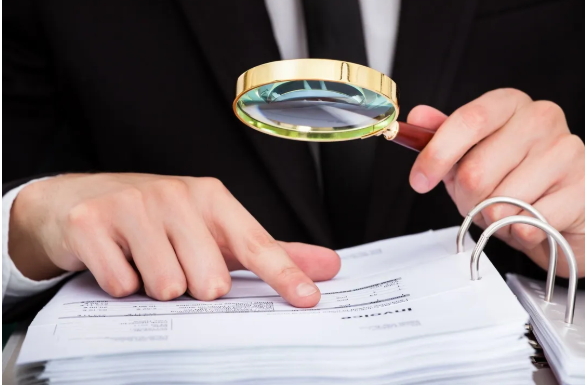One day, you’re at a backyard barbecue on Long Island, enjoying the warm sun and laughing with friends. Suddenly, the police show up, and the fun vibe shifts. They say someone reported smelling cannabis. Everyone looks around nervously, and you remember how just a few years ago, this could have caused big trouble. Now, thanks to the Marijuana Regulation & Taxation Act (MRTA), the rules about cannabis in New York have changed a lot. Adults can legally use cannabis, but there are still many rules to follow. If facing a marijuana or controlled substance charge, consult a dedicated Long Island criminal defense lawyer to navigate the laws.
Understanding New York’s Cannabis Laws
On March 31, 2021, New York made history by passing the MRTA, legalizing adult-use cannabis in specific circumstances. The law has introduced several key provisions that every resident should be aware of:
- Legal Possession: Adults aged 21 and older can now legally possess up to 3 ounces of cannabis and up to 24 grams of concentrated cannabis (like edibles or vape oils).
- Search and Seizure Changes: The presence of cannabis or its odor can no longer automatically justify a search. Law enforcement can only conduct searches based on probable cause related to the driver’s condition if they suspect someone is operating a vehicle under the influence of cannabis.
- Protection Against Unlawful Searches: Even in cases where police suspect impaired driving, the smell of burnt cannabis does not allow them to search areas of a vehicle not readily accessible to the driver.
- Expungement of Records: The law provides for the expungement of certain marijuana and cannabis convictions that would now be considered legal under the MRTA.
Key Cannabis Offenses and Their Penalties
New York’s cannabis laws include a variety of offenses and corresponding penalties. Below is a breakdown of key offenses and what they entail:
- Unlawful Possession (NY Penal Law 225.25): Violation for knowingly possessing more than 3 ounces of cannabis or 24 grams of concentrated cannabis.
- Penalty: Fine of up to $125.
- Note: In many cases, these charges are issued via a Desk Appearance Ticket (DAT), allowing individuals to avoid being taken into custody.
- Criminal Possession in the 3rd Degree (NY Penal Law 225.30): Class A Misdemeanor for knowingly possessing more than 16 ounces of cannabis or 5 ounces of concentrated cannabis.
- Penalty: Penalty: Up to 1 year in jail, 3 years probation, combination of both, and a $1,000 fine (plus other court surcharges).
- Criminal Possession in the 2nd Degree (NY Penal Law 225.35): Class E Felony for knowingly possessing more than 5 pounds of cannabis or 2 pounds of concentrated cannabis.
- Penalty: Up to 1.5 years in prison followed by 1 year post-release supervision, 5 years probation, combination of both, and a $5,000 fine (plus other court surcharges).
- Criminal Possession in the 1st Degree (NY Penal Law 225.40): Class D Felony for knowingly possessing more than 10 pounds of cannabis or 4 pounds of concentrated cannabis.
- Penalty: Up to 2.5 years in prison followed by 1 year post-release supervision, 5 years probation, combination of both, and a $5,000 fine (plus other court surcharges).
- Unlawful Sale of Cannabis (NY Penal Law 225.45): Violation for knowingly selling any amount of cannabis or concentrated cannabis.
- Penalty: Fine of up to $250.
- Criminal Sale of Cannabis in the 3rd Degree (NY Penal Law 225.50): Class A Misdemeanor for knowingly selling more than 3 ounces of cannabis or 24 grams of concentrated cannabis; or giving/selling cannabis to anyone under the age of 21.
- Penalty: Up to 1 year in jail, 3 years probation, combination of both, and a $1,000 fine (plus other court surcharges).
- Criminal Sale of Cannabis in the 2nd Degree (NY Penal Law 225.55): Class E Felony for knowingly selling more than 16 ounces of cannabis or 5 ounces of concentrated cannabis; or giving/selling more than 3 ounces of cannabis or 24 grams of concentrated cannabis to anyone under the age of 18.
- Penalty: Up to 1.5 years in prison followed by 1 year post-release supervision, 5 years probation, combination of both, and a $5,000 fine (plus other court surcharges).
- Criminal Sale of Cannabis in the 1st Degree (NY Penal Law 225.60): Class D Felony for knowingly selling more than 5 pounds of cannabis or 2 pounds of concentrated cannabis.
- Penalty: Up to 2.5 years in prison followed by 1 year post-release supervision, 5 years probation, combination of both, and a $5,000 fine (plus other court surcharges).
- Aggravated Criminal Sale of Cannabis (NY Penal Law 225.65): Class C Felony for knowingly selling more than 100 pounds of cannabis or concentrated cannabis.
- Penalty: Up to 5.5 years in prison followed by 2 years post-release supervision, 5 years probation, combination of both, and a $5,000 fine (plus other court surcharges).
Illegal Searches and Police Conduct in Nassau and Suffolk Counties Related to Cannabis Charges
A significant number of cannabis-related charges arise from illegal searches conducted by law enforcement. Under the law, police must have probable cause before searching your vehicle, home, or person. However, even with the passage of the MRTA, many individuals still find themselves subjected to unlawful searches based on outdated perceptions of cannabis use.
If police lacked probable cause or violated your rights during a search, evidence like cannabis may be inadmissible in court. The smell of cannabis alone no longer justifies a car search unless officers suspect you’re driving under the influence. The MRTA provides more protections around searches, making it harder for law enforcement to justify unreasonable searches.
At The R.M.L. Law Firm, PLLC, we conduct a thorough investigation of the circumstances surrounding your arrest. We scrutinize every detail, including police conduct during the stop or search, and assess whether any of your constitutional rights were violated. Did law enforcement have a valid reason to search your property? Did they follow proper procedures when conducting the search? These are essential questions we ask when building your defense.
If any violations are discovered, such as an unlawful search or improper handling of evidence, we will fight to have that evidence thrown out. Without key evidence, the prosecution’s case can weaken significantly, sometimes leading to reduced charges or even a dismissal of the case.
In many instances, the success of a cannabis defense hinges on challenging the legality of police actions. With former prosecutors on our team, we know how law enforcement builds cases, and we can use that knowledge to your advantage. Our team is dedicated to holding law enforcement accountable and ensuring your rights are fully protected throughout the legal process.
Common Cannabis Crime Scenarios in Nassau and Suffolk Counties: Understanding Your Legal Options
Cannabis-related charges can happen in various situations, often when people least expect it. Here are some of the most common scenarios:
Possession at a Party
Let’s go back to the scenario where you’re at a backyard barbecue on Long Island. You’re having a great time until police respond to a complaint. During their investigation, they find cannabis in your possession. While adult cannabis use is legal under certain conditions, quantity matters. Possessing more than 3 ounces of cannabis or over 24 grams of concentrated cannabis can lead to fines or criminal charges.
It’s important to know your rights. Police can’t search you just because they smell cannabis unless they suspect a crime. If you permit a search, any cannabis found can be used as evidence against you. Understanding when police can search helps protect your rights in these situations.
Driving Under the Influence of Cannabis
You’re driving through Mineola, Nassau County, and are pulled over for a routine stop. The officer suspects cannabis use. Driving under the influence of cannabis is illegal and carries serious consequences, similar to driving while intoxicated by alcohol. Proving cannabis impairment is more complicated because New York doesn’t have a standard legal limit like alcohol.
Police may use field sobriety tests or chemical tests, but these methods aren’t as reliable for cannabis impairment. If accused of driving under the influence, it’s important to understand your rights and whether law enforcement followed proper procedures.
Selling Cannabis
Selling cannabis without a license is against the law, and accusations of this can result in serious penalties. Picture being at a venue in Garden City, and someone accuses you of selling cannabis. Whether or not you have a license to sell, the amount of cannabis you are accused of selling and in your possession can determine the charges you face.
Even selling small amounts of cannabis without a license can lead to significant penalties, including fines or even felony charges. Proving that your possession of cannabis was for personal use, rather than for sale, can help reduce the charges.
Public Use of Cannabis
Although cannabis is legal for adult use, there are restrictions on where you can use it. Imagine walking through a park in Rockville Centre and deciding to smoke. Public consumption of cannabis is prohibited in many areas, including parks, schools, and other public places. Violating these laws can lead to fines or criminal charges.
Local regulations can vary, so it’s important to be aware of the rules in Nassau County and Suffolk County. Even if you’re legally allowed to possess cannabis, using it in the wrong place can still cause legal issues.
Protecting Your Future: Building a Strong Defense Against Cannabis Charges on Long Island
Cannabis charges can have serious, lasting consequences, affecting job prospects, housing, and future opportunities. Legal help is essential. If arrested for cannabis possession or sale, securing skilled, aggressive representation quickly is crucial to protect your rights.
At The R.M.L. Law Firm, PLLC, we defend your rights and guide you through complex cannabis laws in Nassau and Suffolk counties. Attorney Ramy M. Louis, a former prosecutor, uses his courtroom experience to craft effective defense strategies for your case.
Depending on the circumstances of your case, several possible defenses may apply:
Illegal Search and Seizure
When law enforcement oversteps its bounds, your rights come first. The Constitution protects you from illegal searches and seizures, meaning police need a valid reason—like a warrant or probable cause—to search you, your car, or your home. Unfortunately, in many cannabis-related cases, officers bypass these rules, hoping you won’t challenge them.
For example, if you’re stopped in Nassau County and the officer claims to smell cannabis, that alone doesn’t automatically give them the right to search your vehicle. If they conduct a search without proper justification, any cannabis or other evidence they find may be thrown out in court.
Lack of Possession
Cannabis may be found nearby, but that doesn’t mean it belongs to you, especially in crowded or shared spaces. For example, at a Long Beach gathering, cannabis found on a table doesn’t prove you knew it was there or controlled it.
We aim to prove you didn’t knowingly possess the cannabis, potentially leading to dropped charges. The prosecution must prove you were aware of and had control over the cannabis, which isn’t always easy.
Medical Marijuana Use
If you’re a registered medical marijuana patient in New York, you have the legal right to use and possess cannabis for medical purposes. But what happens if law enforcement doesn’t recognize or simply ignores your legal protection?
Let’s say you’re stopped in Suffolk County and charged with possession, even though you’re within the legal limits for medical marijuana. By presenting your medical marijuana card and compliance with state laws, we can prove that your use was lawful. We’ll show that your possession was within the limits and fully compliant with the medical marijuana program in New York.
No Proof of a Sale
Being charged with selling cannabis carries harsher penalties than simple possession, but the prosecution must prove an actual sale. If you have a large quantity, but no proof of a sale, like money exchanges or communication, it’s harder to convict. You might be a cannabis user buying in bulk, not a dealer, making the prosecution’s case less convincing.
We’ll challenge the prosecution’s assumptions and argue that without solid proof of a sale, charges should be dismissed or reduced.
Flawed Field Sobriety Tests
Law enforcement often uses field sobriety tests to detect cannabis impairment, but these tests are designed for alcohol, not cannabis. In Nassau County, roadside tests like the “walk and turn” can be influenced by anxiety, medical conditions, or uneven pavement. THC stays in your system long after its effects fade, making chemical tests unreliable in determining current impairment.
We challenge the accuracy of sobriety tests and scrutinize chemical testing and officer observations to create reasonable doubt. By attacking the methods used, we aim to reduce or dismiss cannabis-related charges through strong legal arguments. Attorney Louis has secured dismissals and reductions for cannabis offenses through diligent investigation and strategic, tailored defense.
Frequently Asked Questions About Cannabis Charges in New York
What are the legal limits for cannabis possession in New York?
Adults 21 years and older can legally possess up to 3 ounces of cannabis and 24 grams of concentrated cannabis.
Can I be arrested for having cannabis if I am within the legal limits?
Yes, if there are other circumstances that raise suspicion, such as being involved in illegal activities or exhibiting erratic behavior.
What happens if I am charged with selling cannabis without a license?
Selling cannabis without a license can lead to serious felony charges.
How can a defense attorney help in a cannabis case?
A defense attorney can investigate your arrest, challenge the legality of searches, and negotiate deals to reduce or dismiss charges.
What are the consequences of a cannabis conviction?
A cannabis conviction can lead to fines, jail time, and a criminal record, which may affect employment and housing opportunities.
Contact The R.M.L. Law Firm, PLLC for Defense Against Cannabis & Marijuana Charges
If you’ve been arrested for a cannabis-related offense in Nassau County, Suffolk County, or elsewhere, don’t face these charges alone. The R.M.L. Law Firm, PLLC is here to fight aggressively for your rights and defend your freedom. With extensive experience in prosecution and defense, our firm knows the complexities of New York cannabis laws. Contact our firm today.





